7 Easy Ways to Find Out Who’s Searching for You Online

7 Easy Ways to Find Out Who's Searching for You Online
Somebody is searching for you on the web – and they’re presumably going to track down you. The web is loaded with, sites and administrations that give your subtleties to other people.
It’s an awkward sensation to realize that your own information can be utilized to follow you. While it is impossible any individual who has Googled you would mean damage, it is valuable to know what their identity is.
It very well may be a likely business, previous sweetheart, or even a tragically missing family member. Yet, how might you know whether somebody is looking for you on the web? Here are the five probably ways individuals have of tracking down you.
Who Is Searching for Me Online?
Considering how destinations like my life realize who is looking for you? They don’t accept that you’re concerned that someone might be looking for you, there is tragically no possibility of knowing what their personality is.
Much of the time, be that as it may, you likely have a smart thought. Amicable countenances will presumably turn up through Facebook. Others, be that as it may, are probably going to track down another way.
While it’s impractical to uncover what their identity is, you can basically utilize similar apparatuses they’re utilizing. In this way, while you can’t understand who has Googled you, you can set up cautions at whatever point your name shows up on a site, in a gathering, or on interpersonal organizations.
From that point, you ought to have the option to follow the message back to the first banner and discover what their identity is.
1. Who Has Googled You? Use Google Alerts
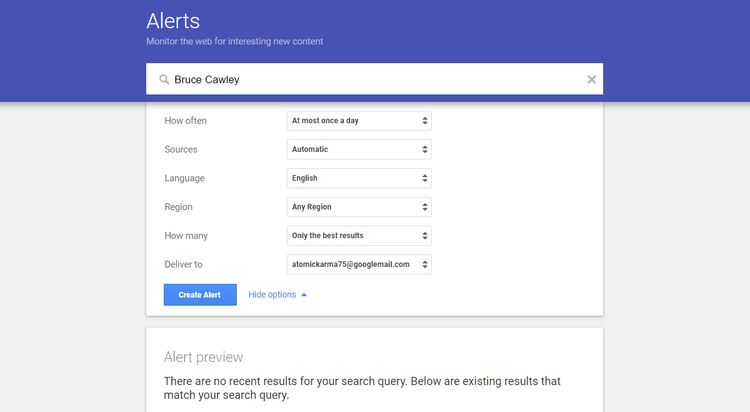
You may be asking yourself, “Who Googled me?” The primary thing to do is to set up a Google alert. It could appear to be to some degree selfish, yet this is really the initial phase in leaving nothing to chance.
Simply don’t tell anybody you have an alarm for your own name on Google Alerts…
Sign in to Google and visit google.com/alerts. Here, enter your name in the alarm box at the highest point of the page and snap Create Alert.
Utilize the Show Options connect to extend the view. This will allow you to set how frequently email cautions will show up.. You’ll see a review of your cautions as well, to provide you with a thought of how they will look.
It won’t let you know how consistently your name has been Googled. However at whatever point Google sees your name on a site page, news page, electronic media, gathering, or blog segment, it will send you an email alert!
2. Look for Social Mentions
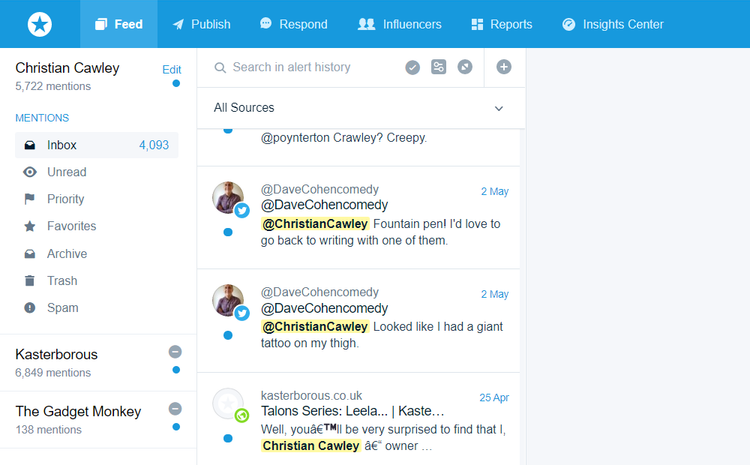
Like Google Alerts, yet zeroing in on informal organizations that could see notice of you go by Mention.com.
This is an online ready framework that offers applications for Windows 10 and macOS, as well as Android and iPhone. Join is free for the standard assistance, while Mention likewise offers a 14-day preliminary of the completely included help. When you join, sign in and make an alarm. You can pick up to four extra alarms, which for this situation may be the names of close relatives.
To continue, click Get Started . Notice will begin examining sources, including websites, discussions and informal organizations like Facebook and Twitter. At first a default choice of sources is examined ; click the Edit ready button in the Mention dashboard to alter this.
The Mention dashboard records all occasions of your preparation. As per usual is sent off into your email inbox. The notification should be clicked. The point when a email is got find what setting your name has been used in.
Is it safe to say that someone is searching for you?
3. Look for Social Mentions
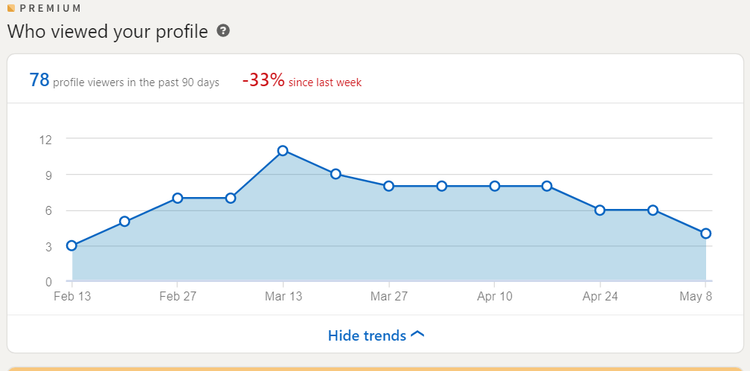
A LinkedIn profile is extraordinarily helpful for getting another line of work. You may be a specialist, a specialist in your field or then again in the event that you’re essentially searching for a difference in vocation.
Nonetheless, a presence on LinkedIn implies that you can be found. Marking in to the help will show a sum of profile sees for the current time frame. LinkedIn Premium individuals will see full subtleties of those survey them; the free record holders will just see a modest bunch.
Might it be said that someone is searching for you?
LinkedIn will show your profile sees with the accompanying data :
- Name
- Profile picture
- Job role
- Company/Business name
- Connection type
- Time since they viewed your profile
Assuming somebody is utilizing LinkedIn to find you, there is a decent opportunity that it is for business related reasons. Then again, you could get a kick out of the chance to realize exactly who is looking, and why. Utilizing the LinkedIn Premium assistance is a decent method for understanding this. Not at all like different choices, it will show who has looked for you as long as they are a LinkedIn part.
4. Check Facebook Interactions to Learn Who Is Looking for You
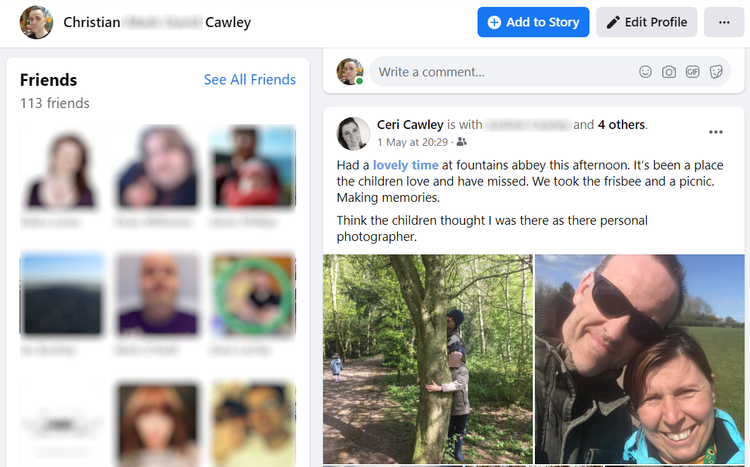
Facebook doesn’t let you know who has seen your profile, isn’t that so? Indeed, that is half correct. While there is no self-evident, express method for spotting who has checked you, Facebook gives a few insights.
Facebook’s calculation for showing which of your companions has seen your profile is just about as obscure as the one that proposes new contacts. Be that as it may, components like photograph labeling, profile perspectives, and which contacts are online are totally accepted to affect who is shown.
While uncertain, you can essentially perceive which contacts are keen on searching for you on the web.
In the interim, on the off chance that you utilize the Facebook Story include, you can check who has seen the post. In the wake of posting a story and sitting tight for it to gather a couple of perspectives, open the story post and snap the eye symbol. This will list the names of the companions and different associations who saw the post. Unfortunately, it can’t see you how frequently your name been looked on Facebook.
5. Learn Who Is Searching for You With Twitter Analytics
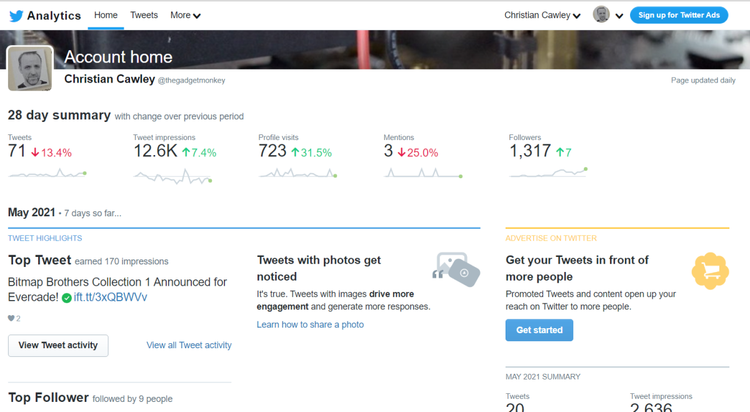
You can likewise go top to bottom on Twitter to discover who is searching for you on the web. You presumably definitely realize that you can check the usernames of individuals who like or retweet your posts. Except if they have their record locked or covered up, those cooperations are recorded for you to check.
However, what might be said about past that? Different collaborations, for example, individuals looking for you or perusing your record of tweets are not recorded. Nonetheless, you can utilize the Twitter Analytics screen (More > Analytics) to find out additional. This shows your top tweets and top adherents. While not gigantically uncovering, it very well may be helpful to recognize a supporter you were generally ignorant about – maybe a mark of somebody who is looking for you on the web.
6. Is Long Lost Family Searching for You?
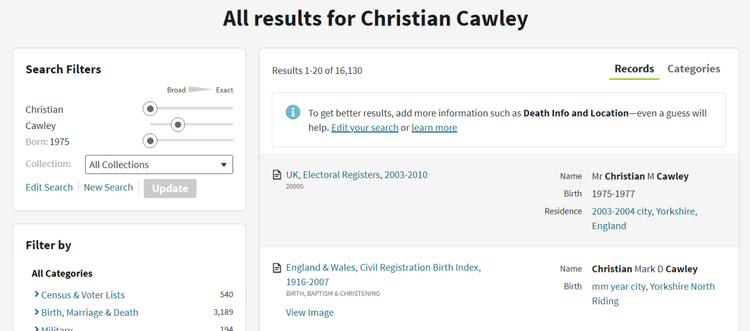
Garish tragically missing family get-togethers are TV appraisals gold. They’re additionally frequently liable for individuals attempting to find far off (or alienated) family members for a gathering after numerous years. Different sites exist that can be utilized to find you and your family under the support of “family research”.
For instance, reception search destinations, (for example, www.adopted.com) can be utilized to follow you, or your distant kin. While no reception organization would permit contact with people without authorization, enrolling with one of these destinations includes submitting assent.
In the interim, family history research behemoth www.ancestry.com has a tremendous data set that could hypothetically be utilized to follow your momentum whereabouts.
Unfortunately, in the same way as other of the devices we’ve referenced here, Ancestry can be abused. As an Ancestry part you get warning in the event that you have been added to other genealogies. In any case, you can’t figure out whether anybody has really taken a look at yours or your precursors’ subtleties. It is feasible to place a lock on your record, notwithstanding, to forestall access by random gatherings.
7. Obituaries and Death Notices
Strangely, a passing and resulting declaration can show individuals where you are. Too occupied with being dead to mind?
Consider the possibility that it was the death of a friend or family member. Your notice in their tribute or passing notification in the neighborhood press, duplicated for the web-based version, could put a major “have arrived” notice over your head. There are many individuals who offer names, normal and exceptional. Maybe it won’t make any difference. Be that as it may, it merits taking consideration. All things considered, this data may be the last piece in the riddle for somebody attempting to find you.
It merits thinking about that the declaration of births and relationships in the press can likewise make individuals aware of your area.
Use Alerts and Stay Aware!
Individuals are continuously searching for you, be it companions, family, even fans. Then again, it very well may be obligation gatherers, possible managers, or even crooks.
It is absolutely impossible to realize who looked for you, so the brilliant choice is to deal with all interest in you. A few choices are available to individuals attempting to track down you:
- Google search
- People finding websites like Peek you
- Social networks like Facebook, Twitter, and Instagram
- Professional networking tools such as LinkedIn
- Public record and genealogy sites
- Obituary and death notices of relatives
In the mean time, in the event that you’re searching for somebody on the web, you should simply follow a couple of basic advances. Assuming the individual you’re searching for is on the web, you’ll most likely track down them.


